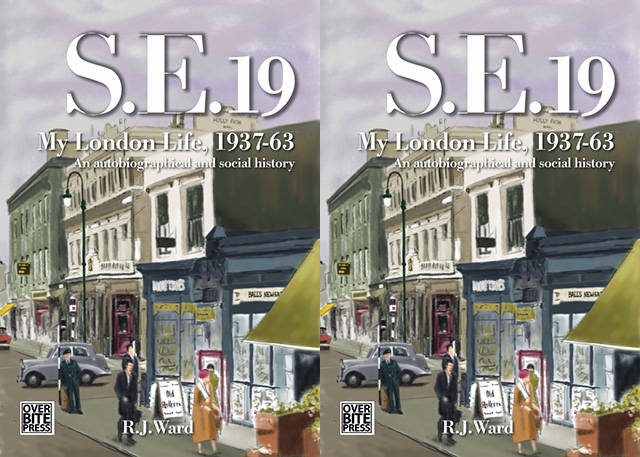S.E.19: My London Life, 1937-63
Book review

S.E.19: My London Life, 1937-63, Roger Ward, Over Bite Press, 2022, 222p, £10-00. ISBN 978-1-915292-39-1.
This is a deeply personal book, written by Professor Roger Ward to describe and explain his early life in Upper Norwood for his children. It is reminiscent of Roy Hattersley’s A Yorkshire Boyhood [1983] and Donald Read’s Manchester Boyhood I the Thirties and Forties [2003] but slightly later in time; and it also shares elements with John Grindrod’s Outskirts: Living Life on the Edge of the Green Belt [2017] because of its focus on life in the southern suburbs of London.
In exploring his wider family’s life in what he defines as S.E.19, he takes us back to a time when children of working-class families were beginning to take their places at grammar schools – in his case Archbishop Tenison’s near The Oval – and how such experiences began to change people’s horizons, assisted in later stages by access to grants to allow them to enter higher education. In Roger’s case this led him into an academic link at Queen Mary College with Professor S. T. Bindoff, whose mentoring helped Roger develop his later academic career. Many of us will empathise with his experience as we have similarly progressed through parallel circumstances and received similar academic mentoring. This process has shaped our modern world.
For anyone familiar with the suburban landscape of Upper Norwood, this book will equally be something of a primary source because Roger gives some substance to the lives of people who lived in that neighbourhood. Those of us who lived further south on the lower reaches of Norwood shared their interest in the fate of Crystal Palace Football Club at Selhurst Park, which has been a lifelong commitment for Roger.
There is a poignance to this book because it covers his life before he embarked on his distinguished career as an historian in, and of, Birmingham; and his long marriage to his beloved wife Robin, who died in 2014. There is a strong case for a second memoir to reveal how his life progressed in Birmingham.

